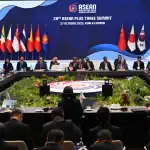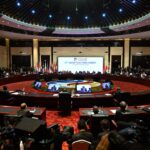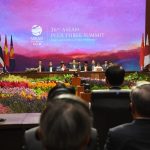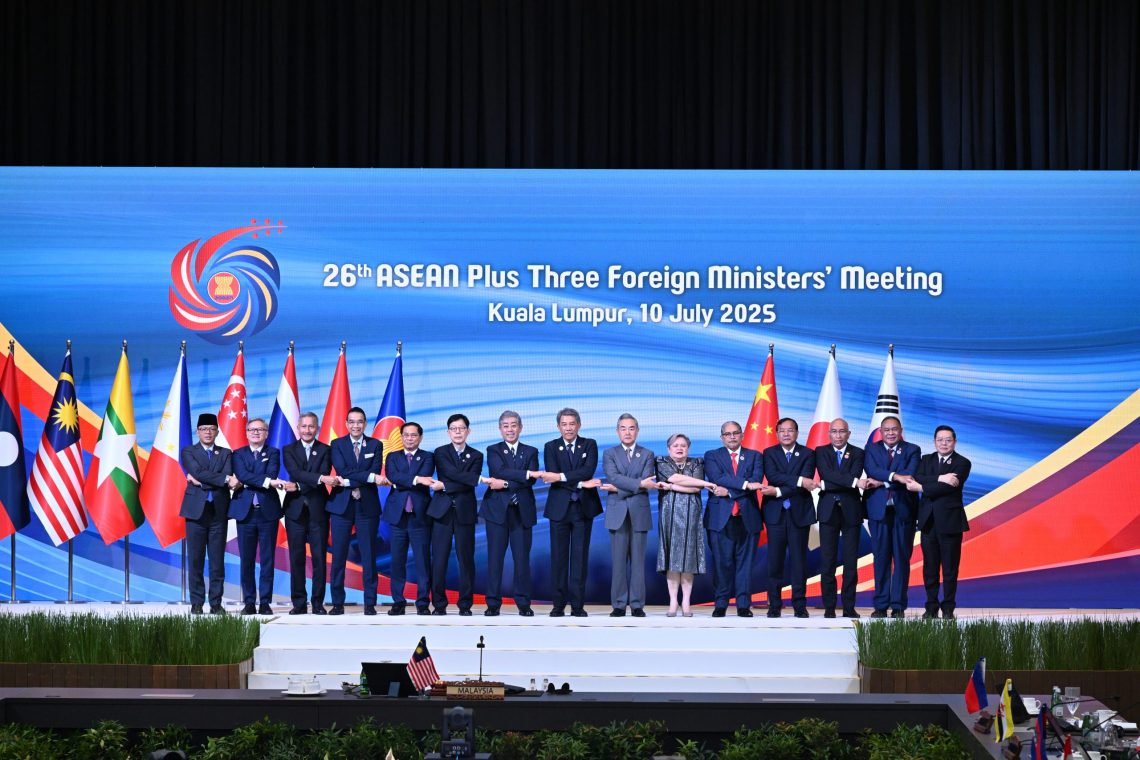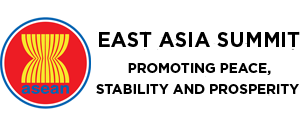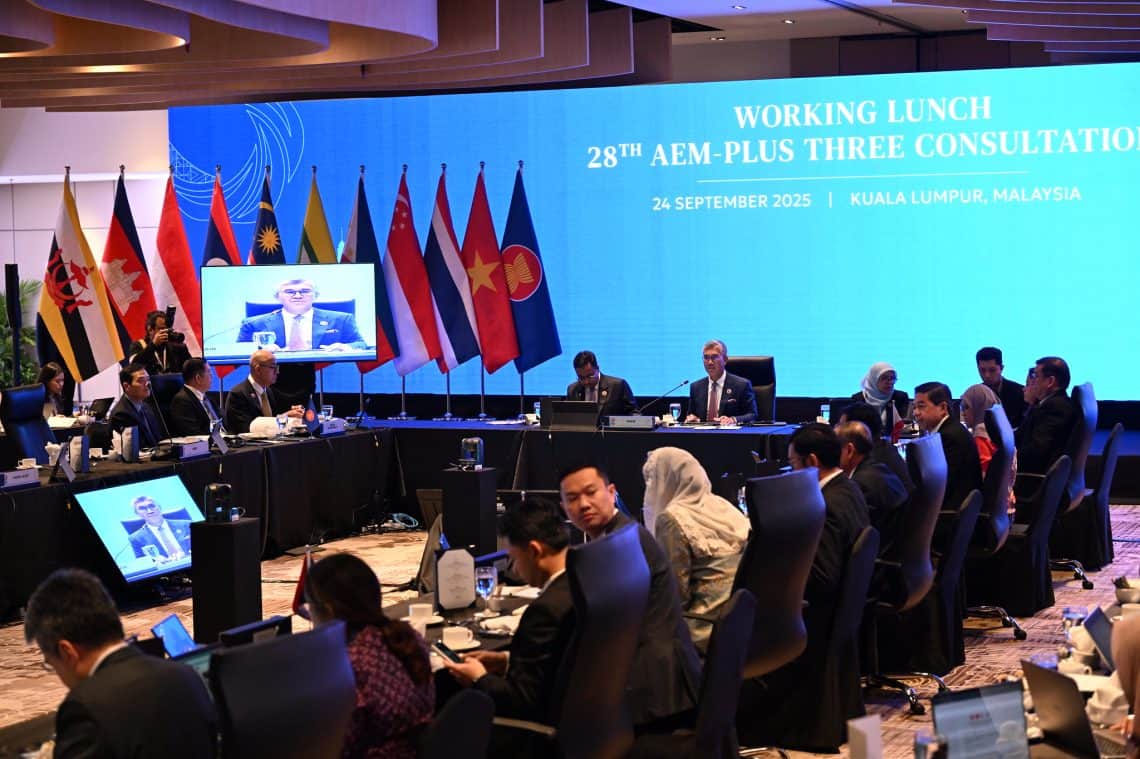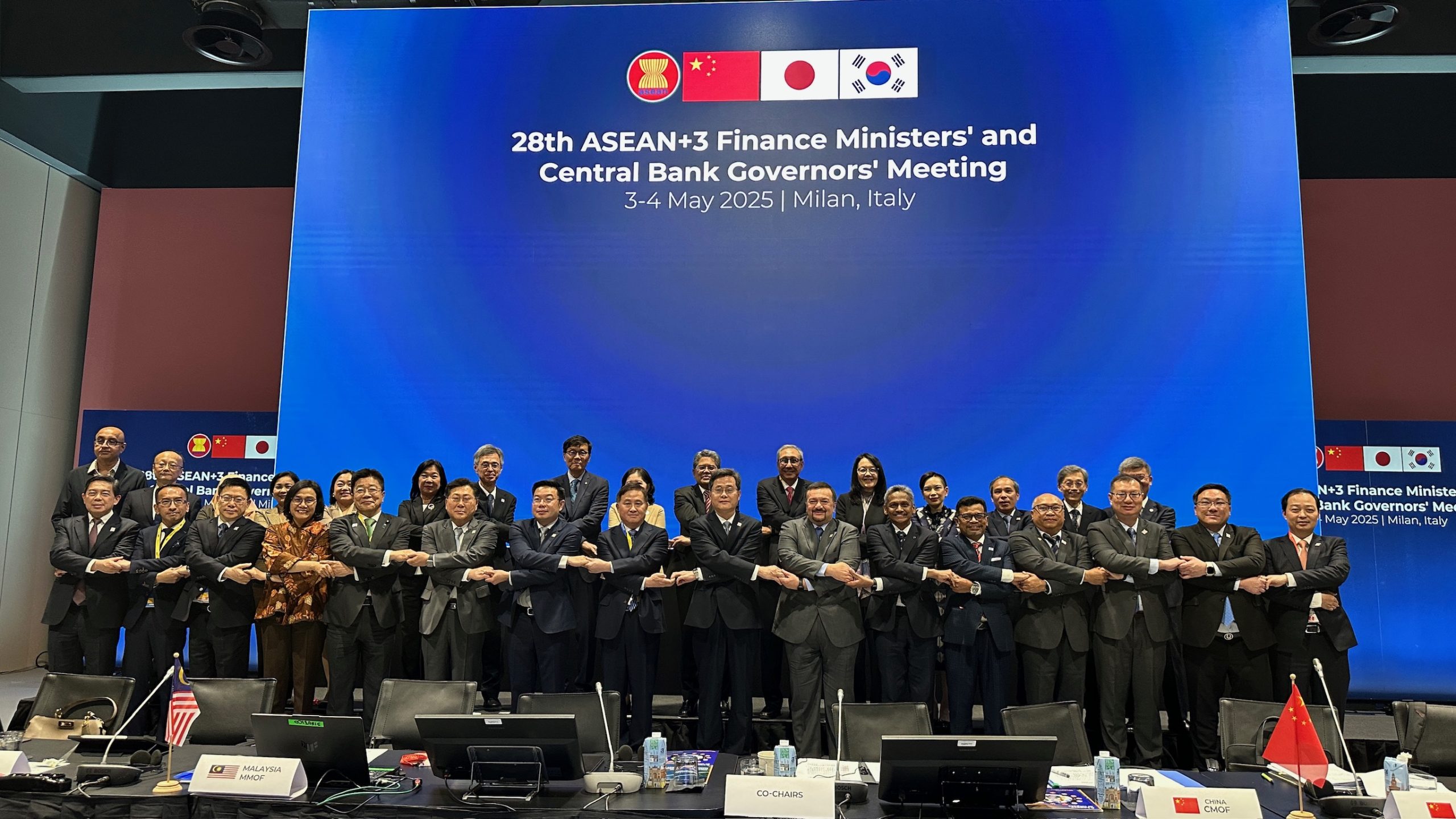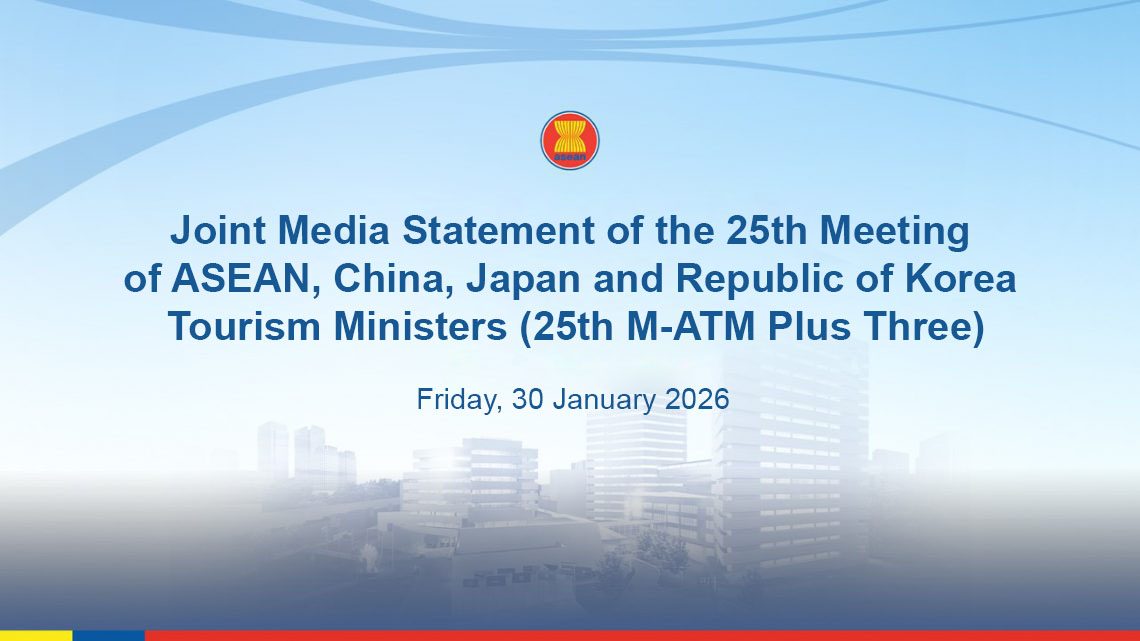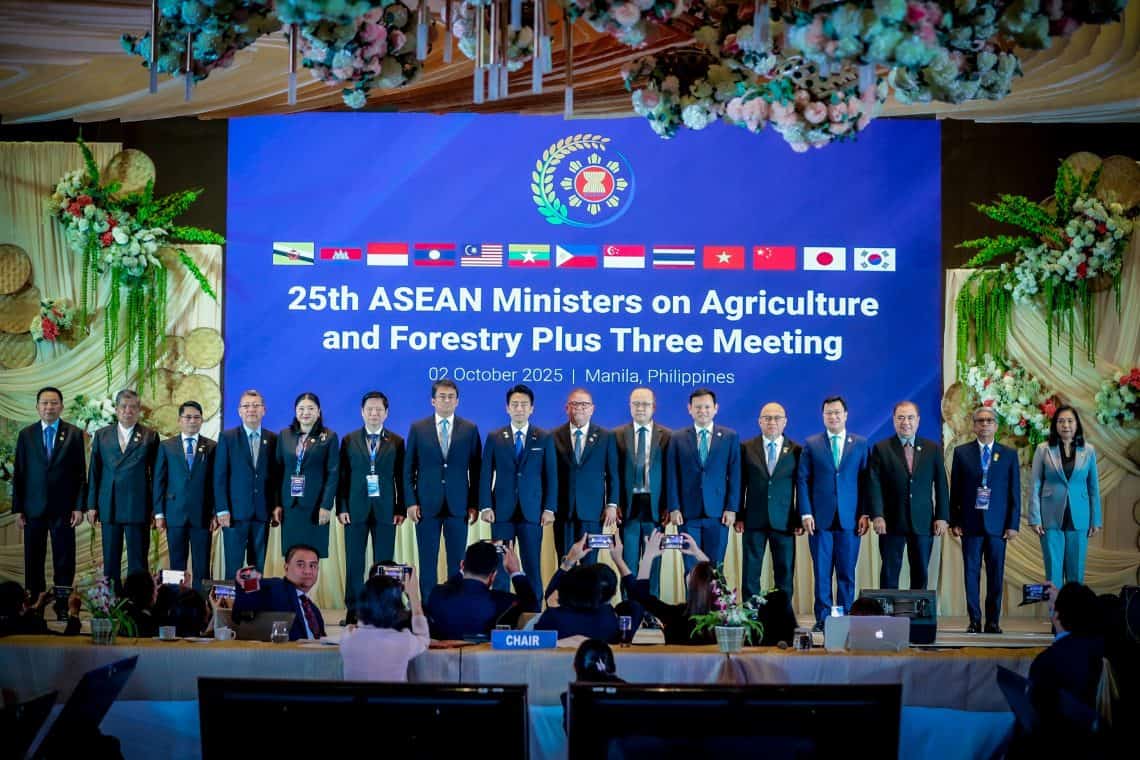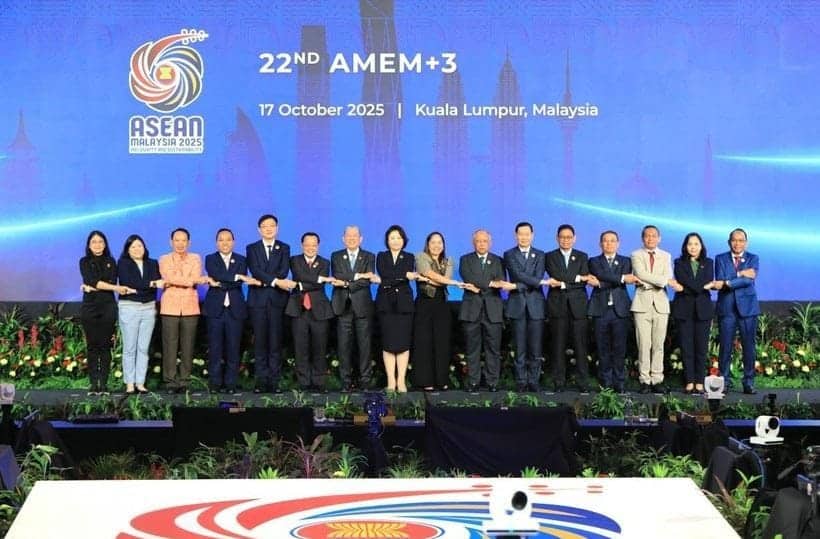The ASEAN Plus Three (APT) cooperation began in December 1997 with an Informal Summit among ASEAN, China, Japan, and South Korea at the 2nd ASEAN Informal Summit in Malaysia. It was institutionalised in 1999 with the Joint Statement on East Asia Cooperation at the 3rd APT Summit, in which the APT Leaders resolved to deepen cooperation in economic, social, political, and other fields.
In 2007, the 2nd Joint Statement titled “Building on the Foundations of ASEAN Plus Three Cooperation” reaffirmed the APT as the main vehicle for East Asian community-building, with ASEAN as the driving force. A 10-year APT Cooperation Work Plan (2007–2017) was adopted at the 11th APT Summit in November 2007 in Singapore. It was later revised and adopted as the APT Cooperation Work Plan (2007–2017) at the 16th APT Summit in October 2013 in Manila. The Manila Declaration in 2017, which marked APT’s 20th anniversary, welcomed the succeeding Work Plan for 2018–2022. The current Work Plan (2023–2027) was adopted in August 2022 at the 23rd APT Foreign Ministers’ Meeting in Phnom Penh.
The APT framework has become a cornerstone of East Asian regionalism, fostering cooperation in political-security, economic, and socio-cultural areas. The APT process has also developed into a full-fledged cooperation framework with 59 mechanisms coordinating various initiatives.
Political-Security Cooperation
Against the backdrop of the 1997 Asian financial crisis, the East Asia Vision Group (EAVG) I was launched at the APT Summit in December 1998. Its final report, “East Asia Community of Peace, Prosperity, and Progress” submitted to the APT Summit in 2001, laid a solid foundation for East Asian regional cooperation. A decade later, EAVG II was established in 2011 to assess APT cooperation activities and explore future directions, with its report submitted to the 15th APT Commemorative Summit in Phnom Penh on 19 November 2012.
The APT continues to deepen political and security dialogue through the annual APT Summit and high-level consultations. The 28th APT Summit on 27 October 2025 in Kuala Lumpur reaffirmed APT countries commitment to further strengthening and deepening APT process which plays a key role and remains a main vehicle for advancing regional community-building efforts and in promoting peace, stability, security and prosperity in the East Asian region with ASEAN as the driving force.
Cooperation on non-traditional security matters is undertaken under the purview of the APT Ministerial Meeting on Transnational Crime (AMMTC+3) and its subsidiary bodies: the APT Senior Officials’ Meeting on Transnational Crime (SOMTC+3), the ASEAN Directors General of Immigration Departments and Heads of Consular Affairs Divisions of the Ministries of Foreign Affairs Meeting Plus Three Consultation (DGICM+3), and the APT Senior Officials’ Meeting on Drugs Matters (ASOD+3). The SOMTC+3 Work Plan (2024–2027) covers three priority areas, namely trafficking in persons, terrorism, and cybercrime, while the DGICM+3 Work Programme (2023–2027) focuses on immigration, consular affairs, and border management.
The APT countries participate actively in the ASEAN-led mechanisms including the ASEAN Regional Forum (ARF), the ASEAN Defence Ministers’ Meeting-Plus (ADMM-Plus) and East Asia Summit (EAS) with the view to ensuring peace, security and stability in the region.
Economic and Finance Cooperation
The APT underlines the importance of trade and investment relations between ASEAN and the Plus Three countries. Preliminary ASEAN statistics for 2024 show two-way merchandise trade reaching USD 1.2 trillion, while FDI from the Plus Three countries totalled USD 44.4 billion.
The 28th ASEAN Economic Ministers Plus Three (AEM+3) Consultation, held on 24 September 2025 in Kuala Lumpur, reviewed progress in the APT Economic Cooperation Work Programme (ECWP) 2025–2026. Key areas include MSME development, private sector engagement and stakeholders’ dialogue, trade facilitation, digital economy, and sustainable development.
Established in April 2004 in Kuala Lumpur, the East Asia Business Council (EABC) continues to promote economic collaboration among East Asia’s private sector and entrepreneurs. At the 28th APT Summit in October 2025, EABC was invited to brief the Leaders on regional economic growth, in which EABC recommended APT countries to strengthen supply chain resilience, enhance support for MSMEs and accelerate digital trade integration.
APT financial and monetary cooperation is advanced under the ASEAN+3 Finance Ministers’ and Central Bank Governors’ Meeting (AFMGM+3). The 27th AFMGM+3 on 4 May 2025 in Milan, Italy, acknowledged the pivotal role of ASEAN+3 financial cooperation in supporting regional economies to navigate the uncertain environment. The 28th APT Summit held on 27 October 2025 in Kuala Lumpur adopted the APT Leaders’ Statement on Strengthening the Regional Economic and Financial Cooperation.
APT countries continue to enhance cooperation in food, agriculture, fisheries, and forestry through the APT Ministers on Agriculture and Forestry (AMAF+3). Key focus areas of cooperation include food security, biomass energy, sustainable forest management, climate change adaptation and mitigation, animal and plant health, information exchange, research and development, and cross-cutting issues. The APT Cooperation Strategy on Food, Agriculture, and Forestry (APTCS) 2016–2025 supports the ASEAN Community Vision 2025 and advances collaboration in agriculture, fisheries, livestock, and forestry.
A key element of APT food security cooperation is the ASEAN Plus Three Emergency Rice Reserve (APTERR), established under the APTERR Agreement signed in October 2011 in Jakarta. APTERR aims to enhance food security, alleviate poverty, and eradicate malnutrition among members without disrupting normal trade

APT tourism cooperation was strengthened with the signing of the Memorandum of Cooperation (MOC) on 22 January 2016 in Manila. The MOC promotes action-oriented collaboration, focusing on travel facilitation, quality tourism development, and enhanced linkages among education and training institutions.
The annual Meeting of APT Tourism Ministers (M-ATM+3) reviews regional tourism cooperation and industry developments. The 24th M-ATM+3, held on 19 January 2025 in Johor, Malaysia, reported that approximately 70% of the APT Tourism Cooperation Work Plan 2021–2025 had been implemented. The meeting also noted the plan to develop a new post-2025 Work Plan for endorsement at the 25th M-ATM+3 in 2026.
APT energy cooperation includes regular forums on oil and gas markets, energy security, renewable energy, and energy efficiency. APT countries exchange views on energy priorities and promote renewable energy deployment at the annual Senior Officials Meeting on Energy Plus Three (SOME+3) and ASEAN Ministers on Energy Plus Three (AMEM+3).
The 20th AMEM+3, held on 24 August 2023, adopted the Joint Declaration on Sustainable Energy Security through Interconnectivity. Subsequently, the 26th APT Summit held in Jakarta on 6 September 2023, endorsed a Leaders’ Statement on Developing an Electric Vehicle Ecosystem, agreeing to explore regional cooperation. The 22nd AMEM+3, held on 17 October 2025 in Kuala Lumpur, underscored the importance of advancing regional energy connectivity as a foundation for ASEAN’s long-term security. The Meeting also welcomed the endorsement of the new ASEAN Plan of Action for Energy Cooperation (APAEC) 2026-2030 with its theme “Advancing Regional Cooperation in Ensuring Energy Security and Accelerating Decarbonisation for a Just and Inclusive Energy Transition”.
Under the APT Senior Officials Meeting on Minerals (ASOMM+3), APT mineral cooperation focuses on geological mapping, cross-border correlations, mineral databases, and conservation. The ASOMM+3 Work Plan 2022–2025 aligns with the ASEAN Minerals Cooperation Action Plan (AMCAP) and guides collaboration in trade, investment, sustainable development, capacity building, and information systems.
Cooperation in science and technology is overseen by the ASEAN Committee on Science, Technology, and Innovation Plus Three (COSTI+3), established in 2006. Key activities include the APT Junior Science Odyssey, the ASEAN+3 Centre for the Gifted in Science Board of Directors Meeting, and workshops and camps for gifted science teachers and students.
On connectivity, the APT Leaders, at their 22nd Summit held on 4 November 2019, adopted the APT Leaders’ Statement on Connecting the Connectivities Initiative, reaffirming the commitment of APT countries to enhancing regional connectivity. Cooperation is currently undertaken between ASEAN and individual Plus Three countries, and each of the Plus Three countries has supported ASEAN in the implementation of the MPAC 2025. In 2024, the 27th APT Summit adopted the APT Leaders’ Statement on Strengthening the Connectivity of Regional Supply Chains, underscoring the importance of strengthening coordination and cooperation among APT countries to promote the mutually beneficial interconnection of supply chain connectivity to avoid supply chain disruptions.
The Plus Three countries regularly attend annual ASEAN Connectivity Symposium and ASEAN Coordinating Committee on Connectivity (ACCC) Consultation with Dialogue Partners and Other External Partners on Connectivity. The 16th ASEAN Connectivity Symposium was held on 12 September 2025 in Kuala Lumpur, carrying the theme “Accelerating Inclusive and Sustainable Connectivity: Synergising Sectors for Equitable Futures”.
Socio-Cultural Cooperation
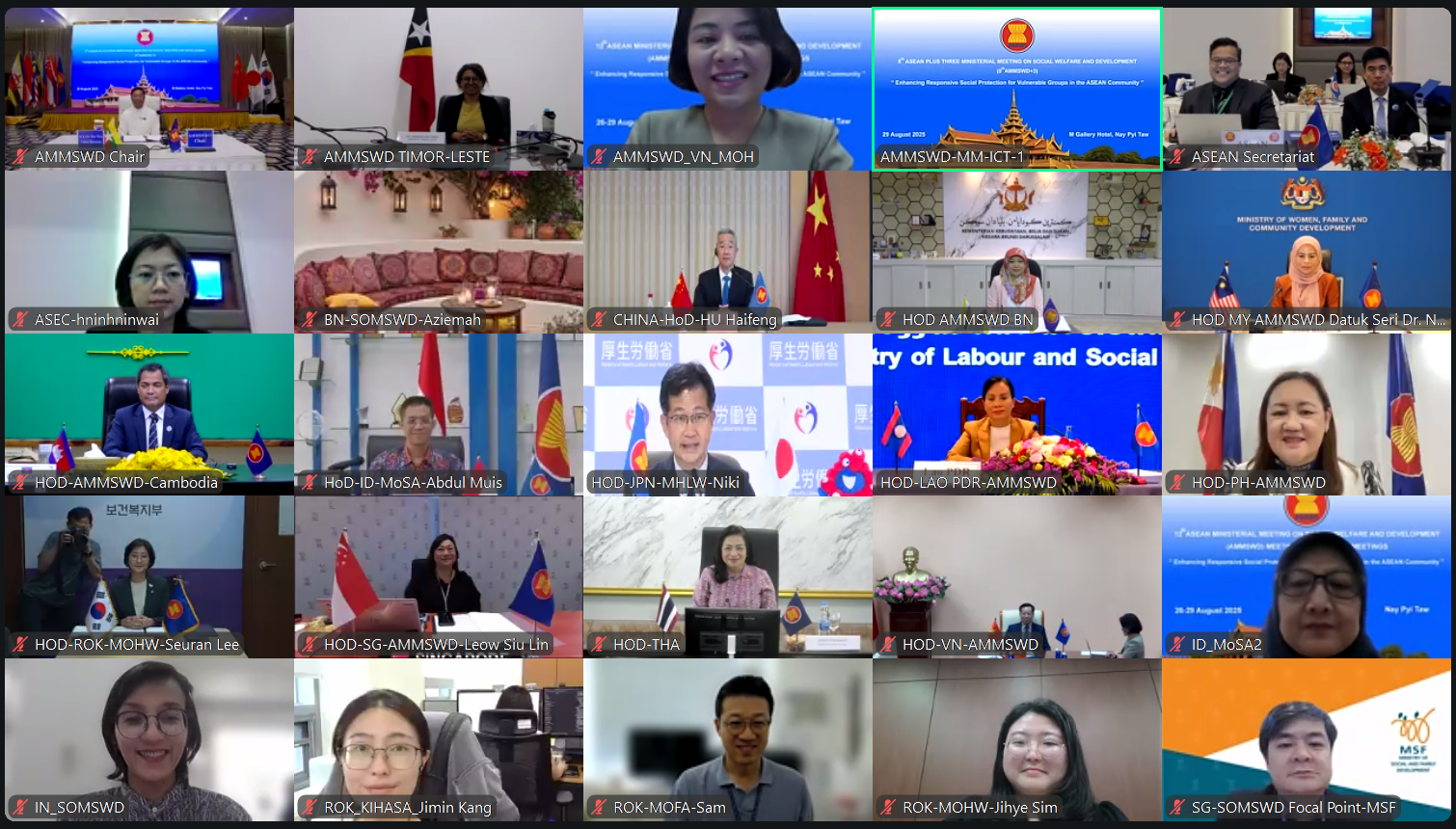
AMMSWD+3
ASEAN Plus Three Ministerial Meeting on Social Welfare and Development
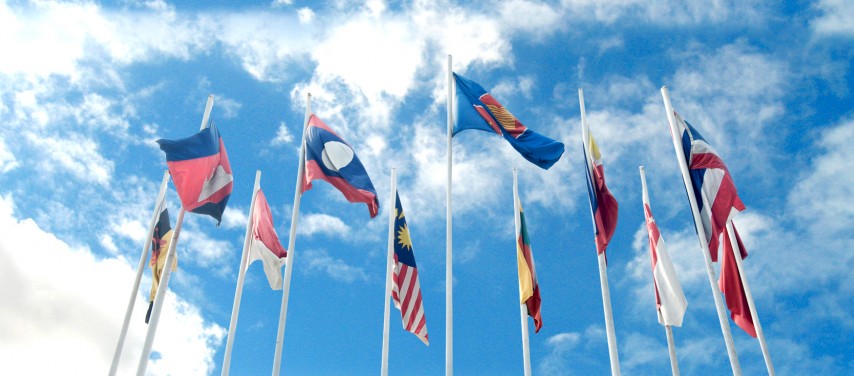
AMMY+3
ASEAN Plus Three Ministerial Meeting on Youth
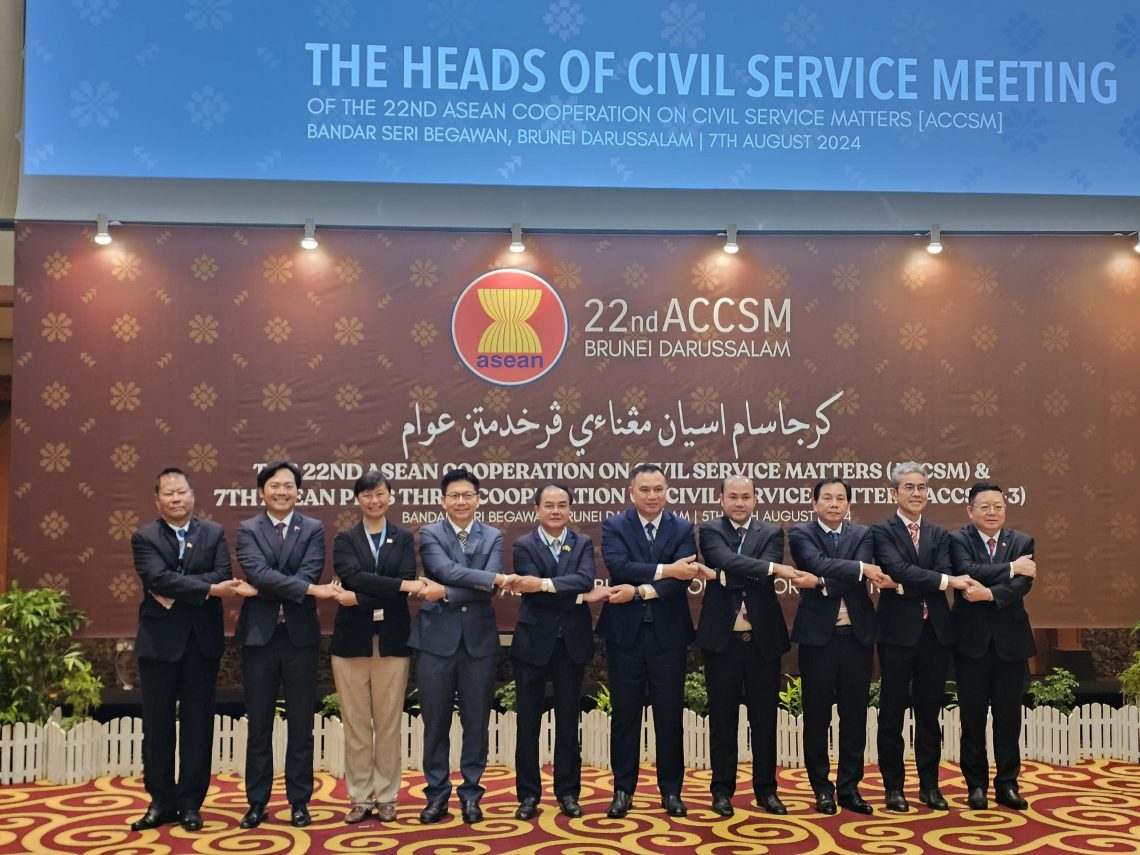
ACCSM+3
ASEAN Plus Three Cooperation on Civil Service Matters
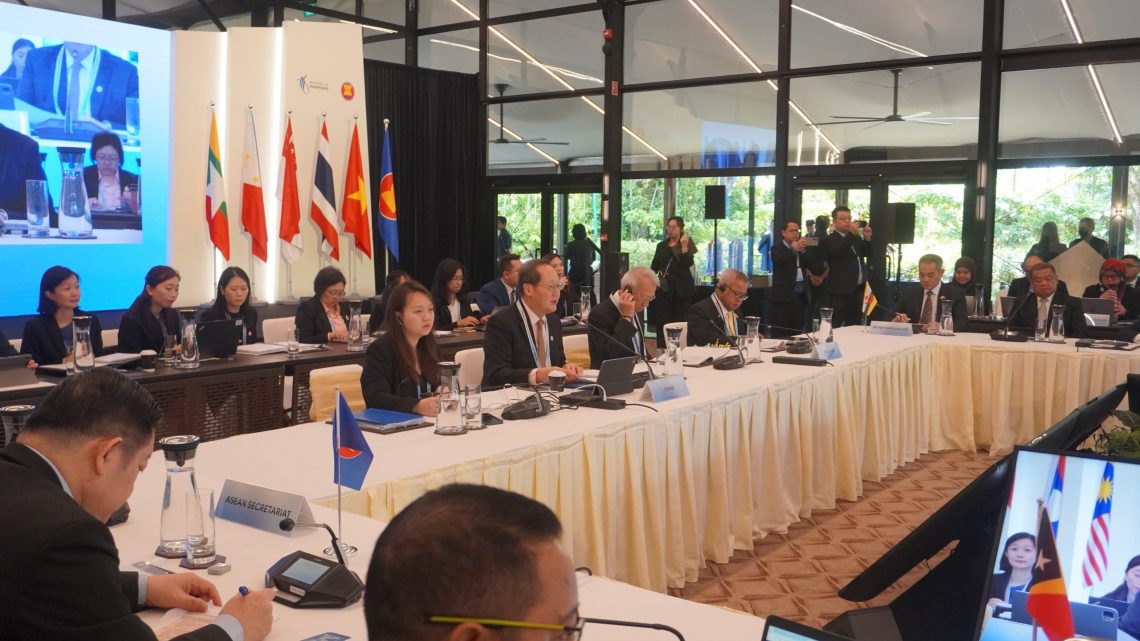
ALMM+3
ASEAN Plus Three Labour Ministers Meeting
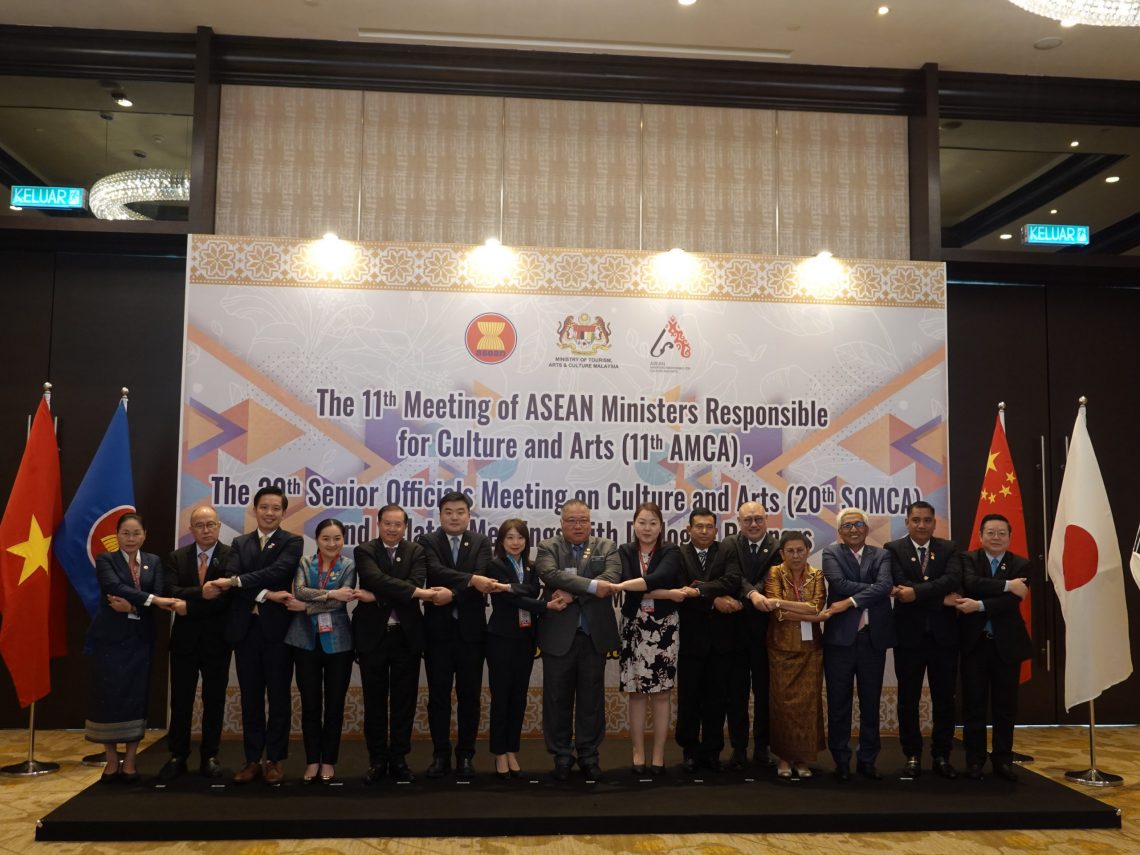
AMCA+3
ASEAN Plus Three Meetings on Culture and Arts
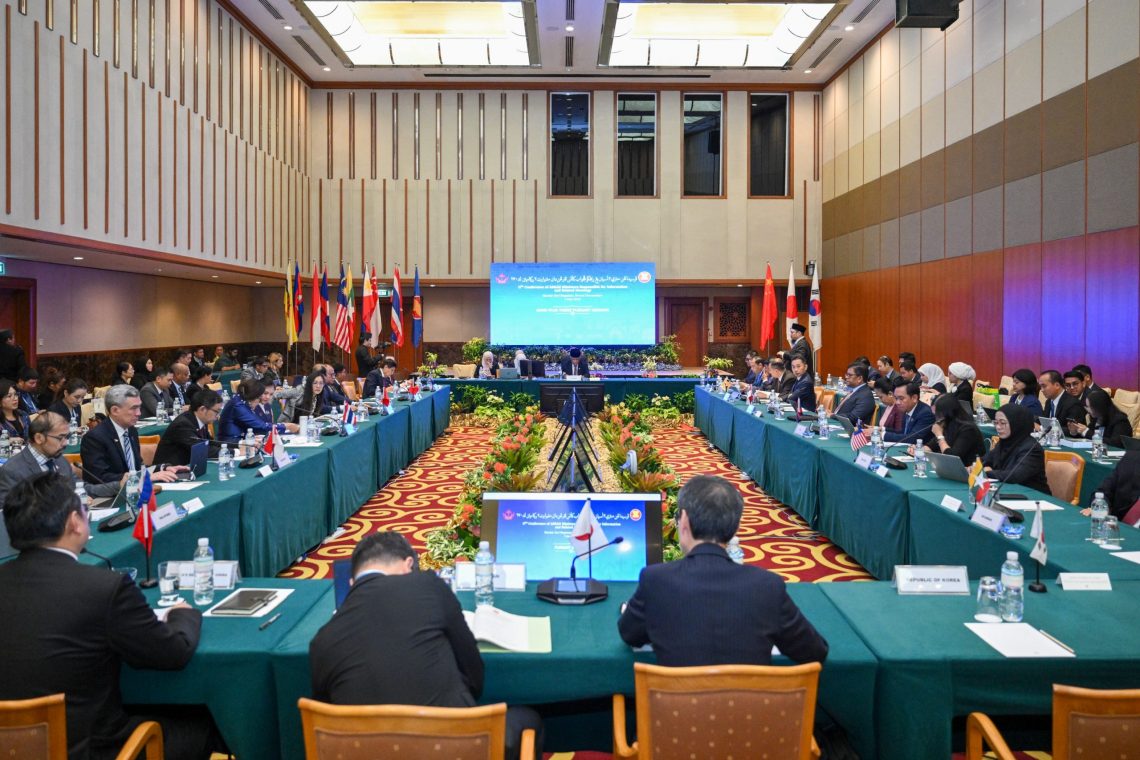
AMRI+3
ASEAN Plus Three Ministers' Meeting Responsible for Information
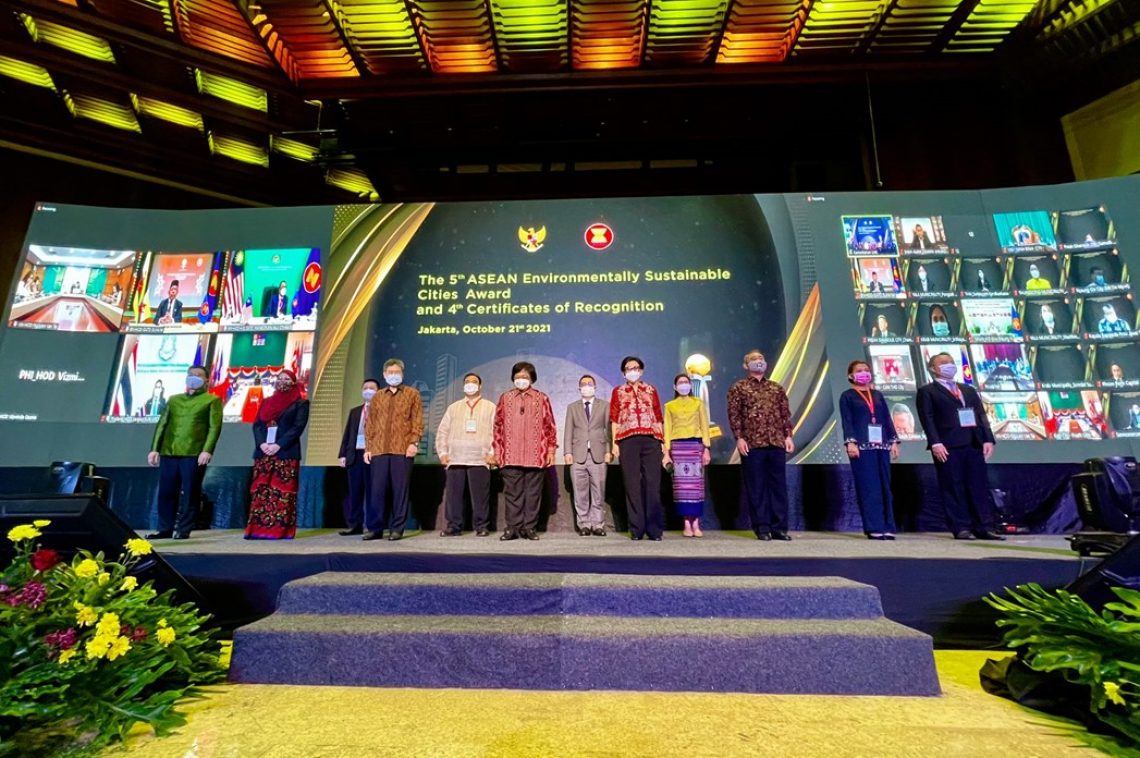
AMME+3 (EMM)
ASEAN Plus Three Ministers Meeting on Environment
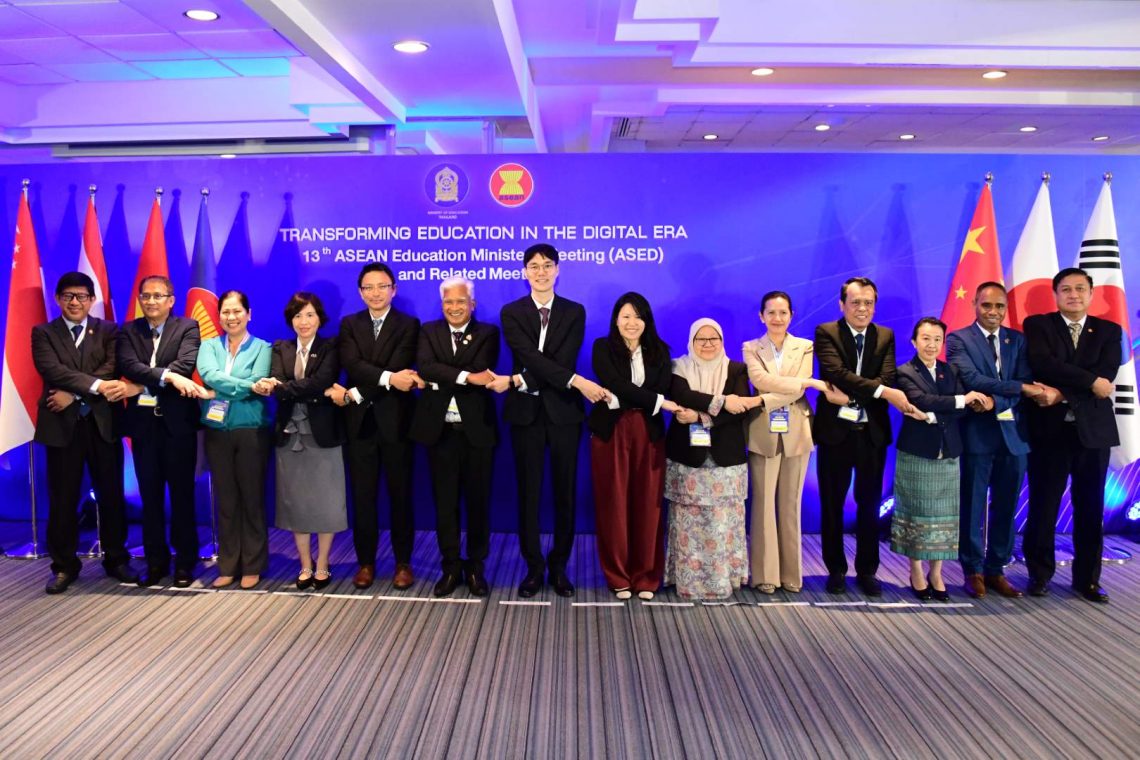
APT EMM
ASEAN Plus Three Education Ministers' Meeting
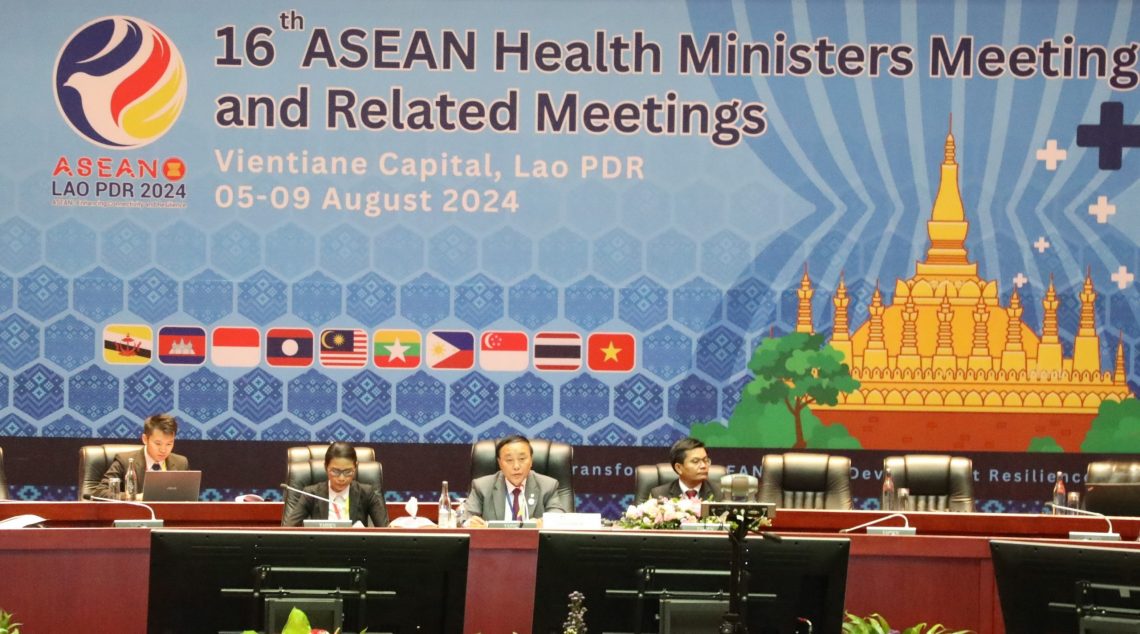
AHMM+3
ASEAN Plus Three Health Ministers Meeting
APT social-cultural cooperation covers many areas, including health, sustainable development, environment, poverty alleviation, social welfare, women, youth, labour, civil service matters, culture, information, and education.
On health, efforts have been made to implement areas of APT health cooperation under the purview of the APT Health Ministers Meeting (AHMM+3) and APT Senior Officials Meeting (SOMHD+3). The 21st APT Summit in November 2018 adopted the APT Leaders’ Statement on Cooperation against Antimicrobial Resistance (AMR). The 10th ASEAN Plus Three Health Ministers Meeting held in Vientiane in August 2024 reaffirmed the APT commitment to strengthening ASEAN health security through digital innovation for cross-border health emergencies.
Recognising the importance of mental health as a critical public health issue that has been exacerbated by disasters, public health emergencies, and other emerging and unprecedented crises, including the COVID-19 pandemic, the 24th APT Summit adopted the APT Leaders’ Statement on Cooperation on Mental Health Amongst Adolescents and Young Children.
Sustainable development is also an important area of APT cooperation. The 19th APT Summit in September 2016 adopted the APT Leaders’ Statement on Promoting Sustainable Development Cooperation, which was aimed to advance the complementarity between the implementation of UN 2030 Agenda for Sustainable Development and the ASEAN Community Vision 2025 to uplift the living standards of people in ASEAN and Plus Three countries over the next decades.
The issue of marine debris was highlighted at the 28th APT Summit, which welcomed the continued contributions of the Plus Three countries in addressing marine debris, particularly through the APT Marine Plastic Debris Cooperative Action Initiative and their continued cooperation to the implementation of the ASEAN Regional Action Plan for Combating Marine Debris in ASEAN Member States 2021-2025.
Cooperation in poverty alleviation is pursued under the ASEAN Senior Officials Meeting on Rural Development and Poverty Eradication Plus Three (SOMRDPE+3), which serves as a platform for policy exchange and sharing of good practices and programme innovations to reduce poverty. The 18th SOMRDPE+3 Meeting will be held in December 2025 in Bangkok, Thailand.
A key APT initiative on poverty alleviation was the Village Leaders Exchange Program, launched in 2013 to facilitate the exchange of knowledge, expertise, and experiences at the community level. The 10th ASEAN+3 Village Leaders Exchange Program, held via videoconference on 25 August 2022, focused on “From Poverty Reduction to Sustainable Rural Development.”
In the area of social welfare and development, the APT continues to exchange views and experiences at the annual Senior Officials Meeting on Social Welfare and Development Plus Three (SOMSWD+3) and at the ASEAN Ministerial Meeting for Social Welfare and Development Plus Three (AMMSWD+3), which is held once every three years. The 8th AMMSWD+3 Meeting held on 29 August 2025, via videoconference with the theme “Enhancing Responsive Social Protection for Vulnerable Groups in the ASEAN Community”. The Meeting agreed to task the SOMSWD+3 to develop the regional priorities in the SOMSWD Work Plan 2026-2030.
APT cooperation on gender issues was formalised with the inaugural APT Committee on Women (ACW+3) Meeting in November 2009. Since then, the ACW+3 has met annually to share best practices on rights-based programs for poverty reduction among women and strategies to address the feminisation of poverty. The 17th ACW+3 Meeting was held on 11 November 2025 in the Philippines.
APT youth cooperation is overseen by the APT Ministerial Meeting on Youth (AMMY+3) and the APT Senior Officials Meeting on Youth (SOMY+3). AMMY+3 has adopted the ASEAN Plus Three Work Plan on Youth 2021-2025 through an ad-referendum on 18 July 2022. This Work Plan form part of the overall youth work plan addressing issues relevant to the Post-2020 strategic direction of youth development in ASEAN and the APT Cooperation Work Plan 2023-2027.
The APT cooperation on labour is pursued under the APT Labour Ministers Meeting (ALMM+3). Since it was established in 2001, the ALMM+3 has been convened biennially. The 13th APT Labour Ministers Meeting (ALMM+3) held in October 2024, noted with satisfaction the progress made in the implementation of the ASEAN Plus Three Senior Labour Officials’ Meeting (SLOM+3) Work Plan (2021-2025) and agreed to develop the successor SLOM+3 Work Plan (2026-2030) and explore the inclusion of, but not limited to, promotion of sustainable entrepreneurship and employment, human resources development including green and digital skills, inclusive social security, and occupational safety and health that includes the hard-to-reach sectors, particularly migrant fishers in the region.
Cooperation in civil service matters is undertaken under the purview of the APT Conference on Civil Service Matters (ACCSM+3). The Inaugural ACCSM+3, held on 29 October 2010 in Luang Prabang, Lao PDR, adopted the Luang Prabang Joint Declaration on APT Civil Service Cooperation. Subsequently, the Fifth APT Heads of Civil Service Meeting held on 18 November 2020 adopted the ACCSM+3 Work Plan 2021-2025.
APT cooperation on culture is strengthened through the APT Ministers Responsible for Culture and Arts (AMCA+3), APT Senior Officials on Culture and Arts (SOMCA+3), and the APT Cultural Cooperation Network (APTCCN). The APT Work Plan on Cooperation in Culture and the Arts 2022-2025 was endorsed by SOMCA+3 in 2021.
Cooperation in information and media is pursued under the purview of the APT Ministers Responsible for Information (AMRI+3). The Work Plan on Enhancing APT Cooperation through Information and Media 2018-2025, adopted by AMRI+3 in 2018. The 8th AMRI+3 held on 7 May 2025 in Bandar Seri Begawan, Brunei Darussalam, in conjunction with the 17th Conference of AMRI, carrying the theme, “MAJU – Media Advancing Joint Understanding: Transforming Media’s Role in Advancing Cooperation and Mutual Understanding in ASEAN”. The Meeting noted the conclusion of the Work Plan and looked forward to the development of a new work plan.
Cooperation in education was strengthened with the convening of the First APT Education Ministers Meeting (APTEMM) on 4 July 2012 in Yogyakarta. The APT Plan of Action on Education (2018-2025) was adopted through ad-referendum in 2018.
The APT supports student mobility in higher education with quality assurance through the continued efforts of the Working Group on Student Mobility and Quality Assurance of Higher Education among ASEAN Plus Three countries. These efforts include developing a guide to improve the availability of online information, thereby fostering mobility. At the 4th APTEMM, held on 1 November 2018 in Nay Pyi Taw, the APT adopted the Guidelines on Student Exchange and Mobility and the Guidelines on Transcripts and Supplemental Documents for Academic Records of Exchange Students.
The APT promotes linkages between universities and encourages credit transfers among universities in APT countries. Through the ASEAN University Network (AUN), activities such as the APT Rectors’ Conference, the APT Educational Forum and Young Speakers Contest, and the APT Youth Cultural Forum are organised. These initiatives actively engage academia, faculty members, and university students across APT countries. Additionally, the CAMPUS Asia Programme, initiated by China, Japan, and the Republic of Korea, continues to be implemented.
Track 1.5 and Track 2 Cooperation
Apart from Track 1 cooperation in various areas outlined above, the APT countries also pursue networking of Track 2 and Track 1.5. Track 1.5 cooperation has been convened through the East Asia Forum (EAF) annually since 2003, covering various topics, including but not limited to energy and food security, economic cooperation, social and cultural cooperation, narrowing development gaps in rural and urban communities, connectivity and non-traditional security cooperation. The 21st EAF was hosted by China on 29-30 October 2023 with the theme of ‘Joining Hands to Create New Development Opportunities for Shared Peace and Prosperity in East Asia. The 22nd EAF will be hosted by Thailand on 9 December 2025 in Bangkok, under the theme of “Advancing Digitalisation and Innovation for a Resilient and Inclusive East Asia”.
Track 2 networking is pursued through the Network of East Asian Think Tanks (NEAT) which submits its recommendations to the annual APT Summit for notation. The 41st and 42nd NEAT Country Coordinators Meeting (CCM) were held on 5 June and 12-13 August 2025, respectively.
![]()
